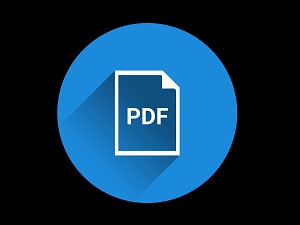
 Reading PDFs on a smartphone can be a lesson in frustration.
Reading PDFs on a smartphone can be a lesson in frustration.
Even at full-screen width, most smartphone display screens are just too small to display it comfortably, which inevitably results in some awkward scrolling as you try to read whatever information the PDF contains.
That’s about to change. Recently, Adobe rolled out a new AI-based feature that should help solve the problem for smartphone users. Dubbed ‘Sensei,’ the AI routine automatically reformats the text images and tables in the PDF to better fit smaller screens.
A spokesman for the company had this to say about the change:
“Giving people tools to view and extract content from PDFs, without changing the PDF itself, will help everyone gain more insight and power from the trillions of PDFs housed in enterprise storage systems, PCs, mobile devices, and on the web.”
“Delivering exceptional digital experiences is our mission, and we’ve been working in service of our customers to do just that for more than three decades. From the introduction of PDF in the early 1990’s, to unleashing it as an open standard in 2008, to the debut of Liquid Mode today, we continue to define how the world works with digital documents, both personally and professionally.”
As you read these words, the new capabilities should already be available on the Adobe Acrobat Reader for iOS and Android, and will eventually be rolled out to Chromebooks, other desktop PCs and ultimately, web browsers too.
It’s a big change and a most welcome one. Kudos to Adobe for putting so much thought and care into enhancing the user experience. PDFs are among the most ubiquitous types of documents found on the web, and anything that makes reading them easier on a wide range of devices is a very good thing.


Leave Your Comments